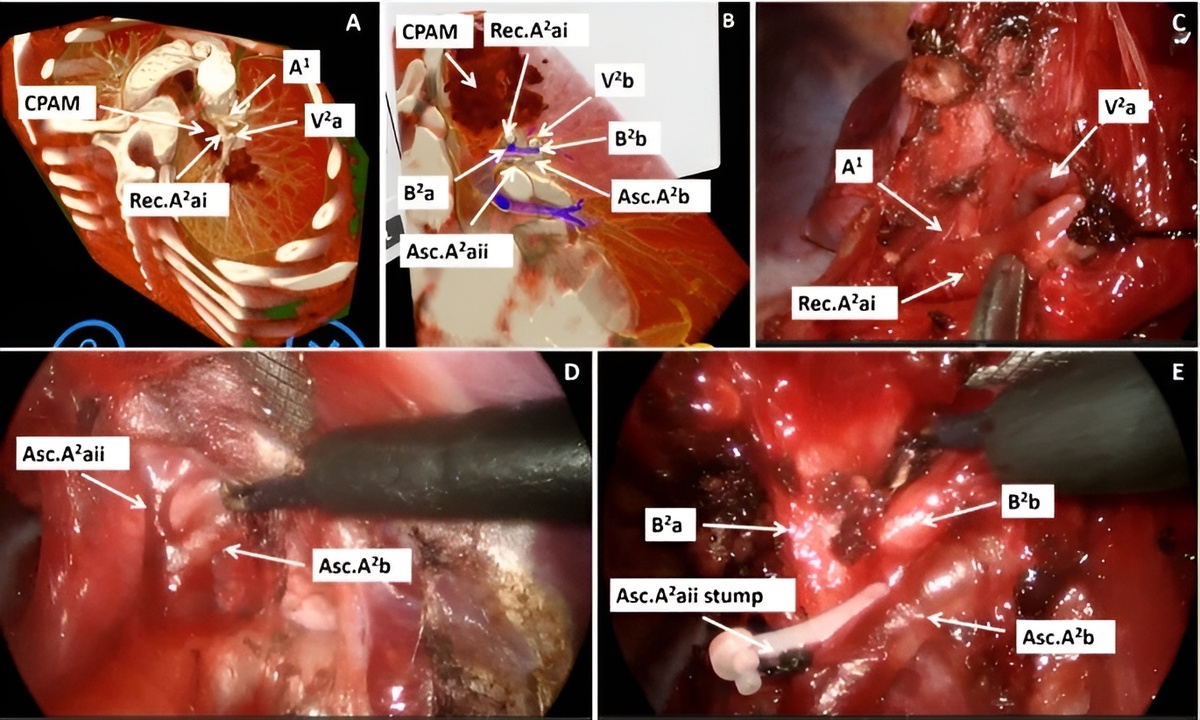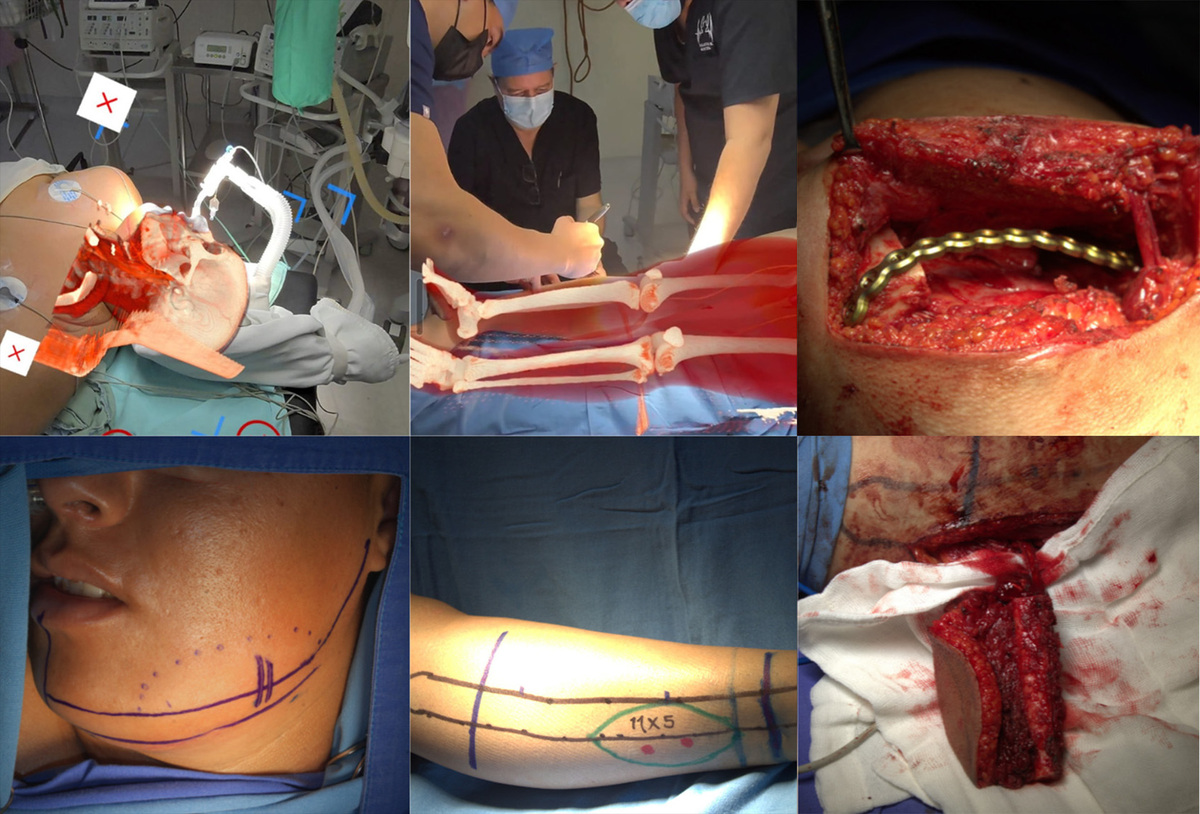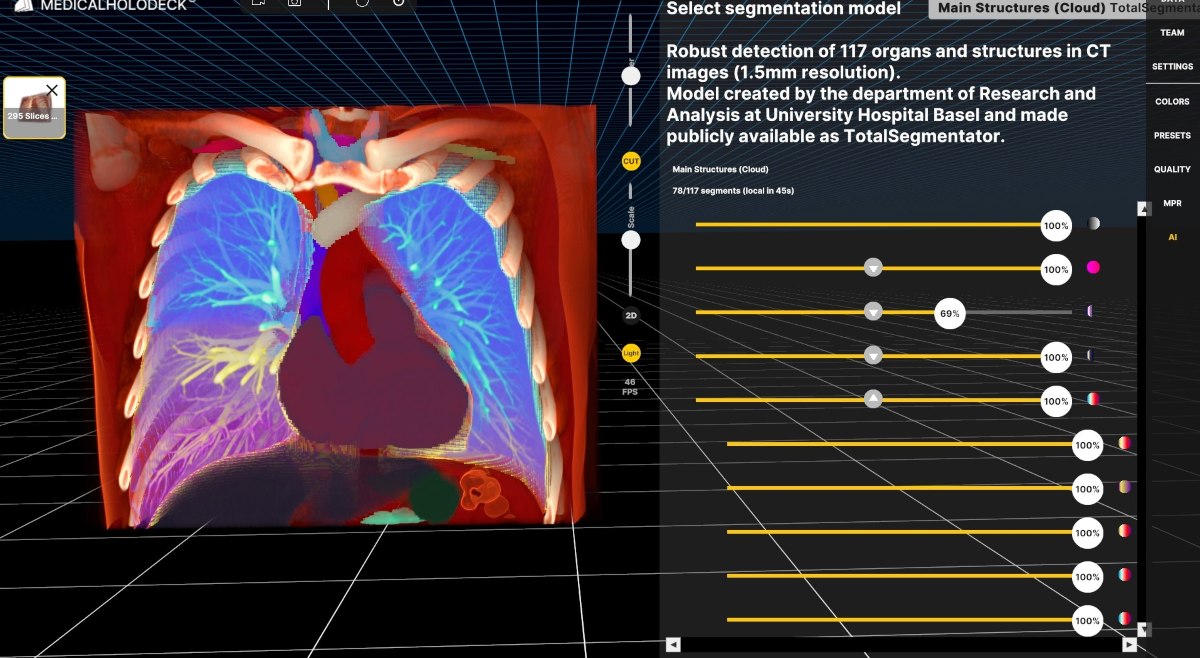Globale chirurgische Zusammenarbeit in der virtuellen Realität
Chirurgisches Wissen in entlegenen Gebieten zugänglich machen
Virtual Reality und 3D-Bildgebung ermöglichen globale medizinische Zusammenarbeit, indem sie Spezialisten erlauben, ihr Fachwissen über Entfernungen hinweg zu teilen. In einer Studie zwischen dem Universitätsklinikum Bonn, Deutschland, und dem Lamu Medical Centre, Uganda, wurde KI-verbessertes 3D-Modelling in XR für die Fernbewertung von rekonstruktiven Fällen getestet. Die Ergebnisse zeigten, dass VR-Sitzungen den Echtzeit-Wissensaustausch und die chirurgische Planung unabhängig vom Standort unterstützen.
Obst, M.; Arensmeyer, J.; Bonsmann, H.; Kolbinger, A.; Kigenyi, J.; Oneka, F.; Owere, B.; Schmidt, J.; Feodorovici, P.; Wynands, J. KI-verbesserte 3D-Modelle in globalen virtuellen Fallkonferenzen für chirurgische Versorgung in einem einkommensschwachen Land: Explorative Studie.
https://formative.jmir.org/2025/1/e69300
Kollaboratives VR in der rekonstruktiven Chirurgie
Milliarden von Menschen weltweit haben keinen Zugang zu sicherer und zeitnaher chirurgischer Versorgung. Die Herausforderung ist besonders schwerwiegend in einkommensschwachen Regionen wie Subsahara-Afrika, Südamerika und Asien, wo ein Mangel an ausgebildeten Chirurgen, begrenzte Infrastruktur und finanzielle oder geografische Barrieren oft die Behandlung dringender Fälle verhindern.
Medicalholodeck bietet eine Möglichkeit, diese Barrieren zu überwinden. Indem Spezialisten ihr Fachwissen über Entfernungen hinweg teilen können, ohne zu reisen, kann VR den Zugang zu chirurgischem Wissen, Planung und Ergebnissen verbessern.
Diese Studie ist eine der ersten, die kollaboratives XR für rekonstruktive Chirurgie im ländlichen Uganda untersucht. Unter Verwendung von KI-verbesserten 3D-Modellen auf erschwinglicher Consumer-Hardware kombinierte der Arbeitsablauf Datenvorbereitung, virtuelle Fallkonferenzen und strukturierte Evaluation.
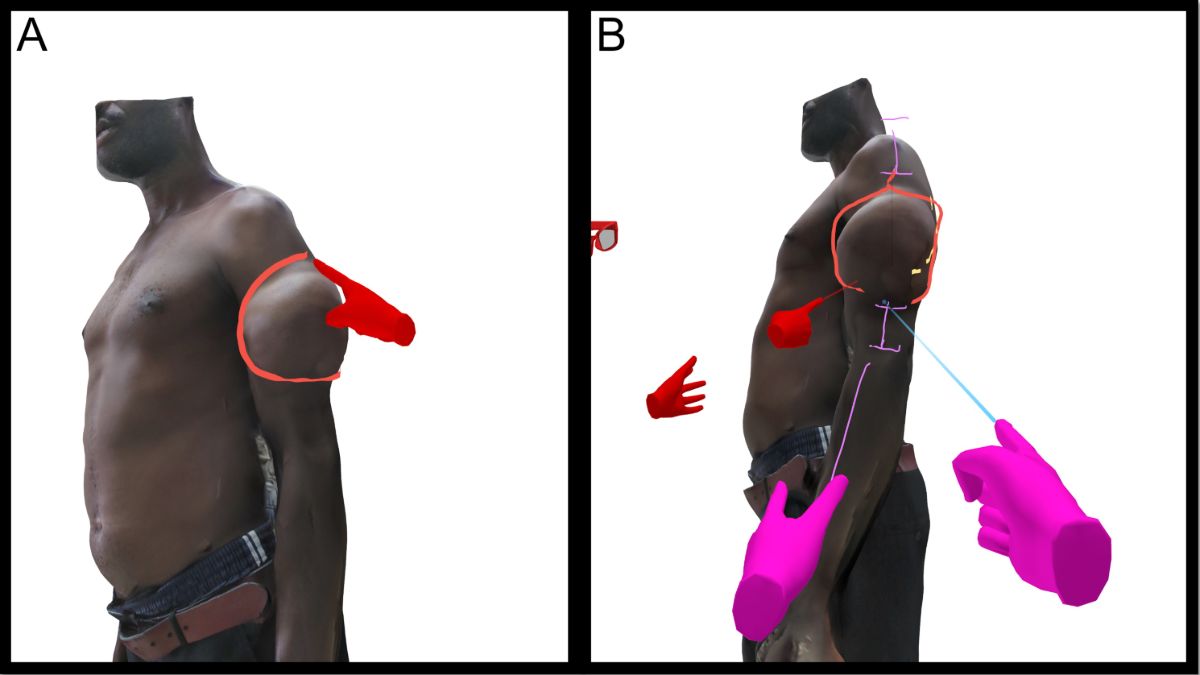
Virtuelle chirurgische Fallkonferenz
Zwei ugandische Chirurgen in Lamu und zwei Chirurgen in Deutschland nahmen mit VR-Headsets an den Sitzungen teil. Vor Ort präsentierten Chirurgen Patientengeschichten und Diagnosen, woraufhin chirurgische Optionen gemeinsam diskutiert wurden.
Medicalholodeck ermöglichte synchronisierte 3D-Visualisierung mit Werkzeugen zum Zoomen, Rotieren und Annotieren von Modellen mittels eines virtuellen Stifts. Jeder Teilnehmer wurde durch einen distincten Avatar repräsentiert, was einen gemeinsamen Raum für Diskussionen schuf, der zu einem vorgeschlagenen Behandlungsplan führte.
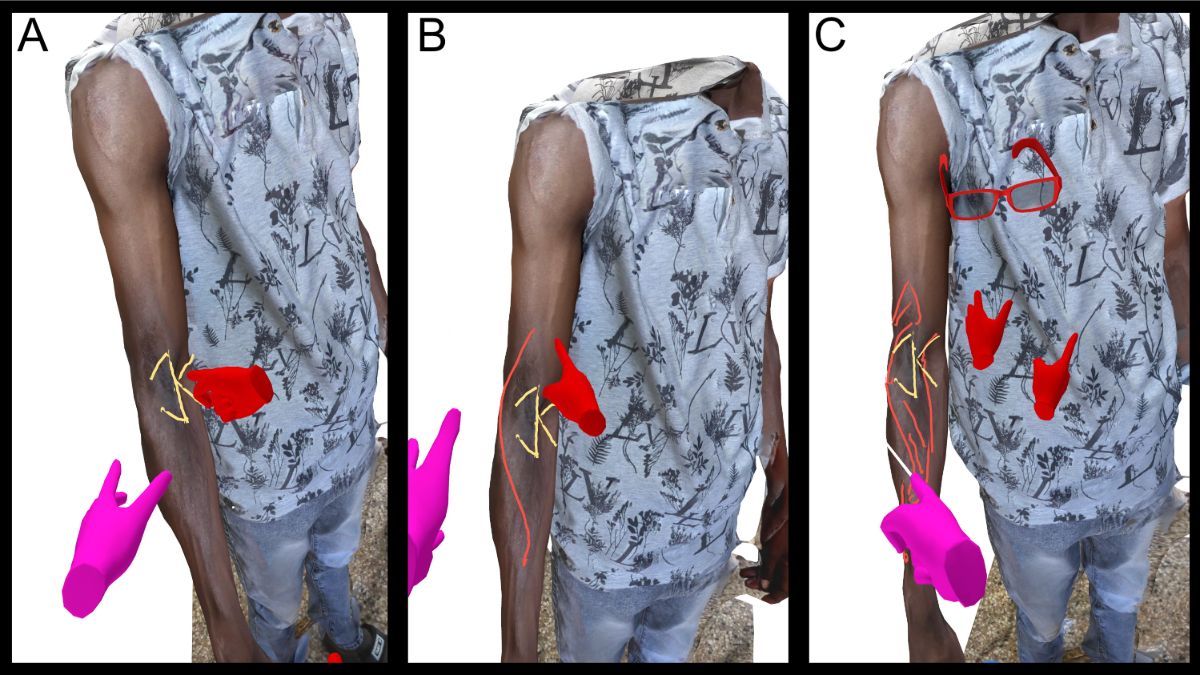
Chirurgie ohne Grenzen: VR-Telemedizin in Aktion
Diese Pilotstudie zeigt, dass die KI-basierte 3D-Rekonstruktion in Kombination mit der XR-Plattform von Medicalholodeck die globale Telemedizin in der Chirurgie sowohl praktikabel als auch effektiv macht. Mit erschwinglicher VR-Hardware bewerteten Chirurgen in Uganda und Deutschland gemeinsam rekonstruktive Fälle in Echtzeit, erkundeten die Anatomie in 3D und einigten sich ohne Reisen auf Behandlungsstrategien.
Medicalholodeck hat sich als praktische Telemedizinlösung erwiesen, die qualitativ hochwertige Visualisierung, intuitive Kollaborationstools und zuverlässige Leistung auf Standard-Consumer-Geräten bietet. Die Studie zeigt, dass fortschrittliche chirurgische Planung und Ausbildung in ressourcenarmen Umgebungen möglich sind, sofern eine stabile Internetverbindung vorhanden ist.
Obwohl größere Studien noch erforderlich sind, unterstreichen die Ergebnisse, wie VR-Telemedizin mit Medicalholodeck den Zugang zu chirurgischer Expertise erweitern, die Ausbildung verbessern und globale Zusammenarbeit fördern kann – und so chirurgisches Wissen von Weltklasse direkt zu den Gemeinschaften bringt, die es am dringendsten benötigen.
Für weitere Informationen kontaktieren Sie
info@medicalholodeck.com
September 2025


